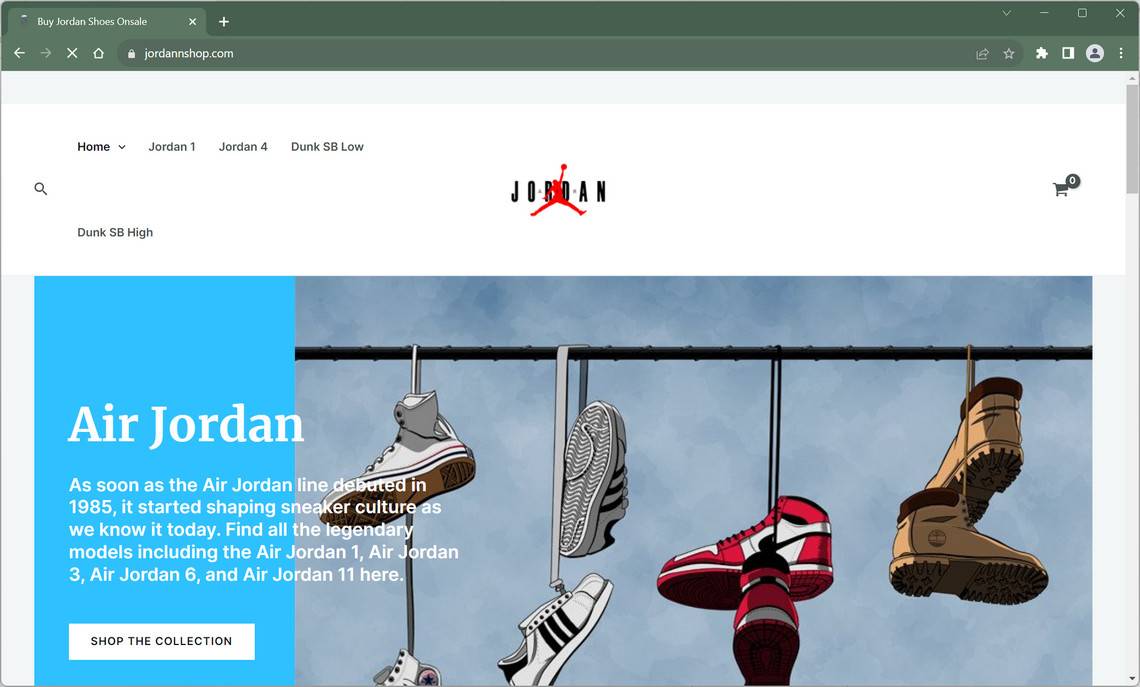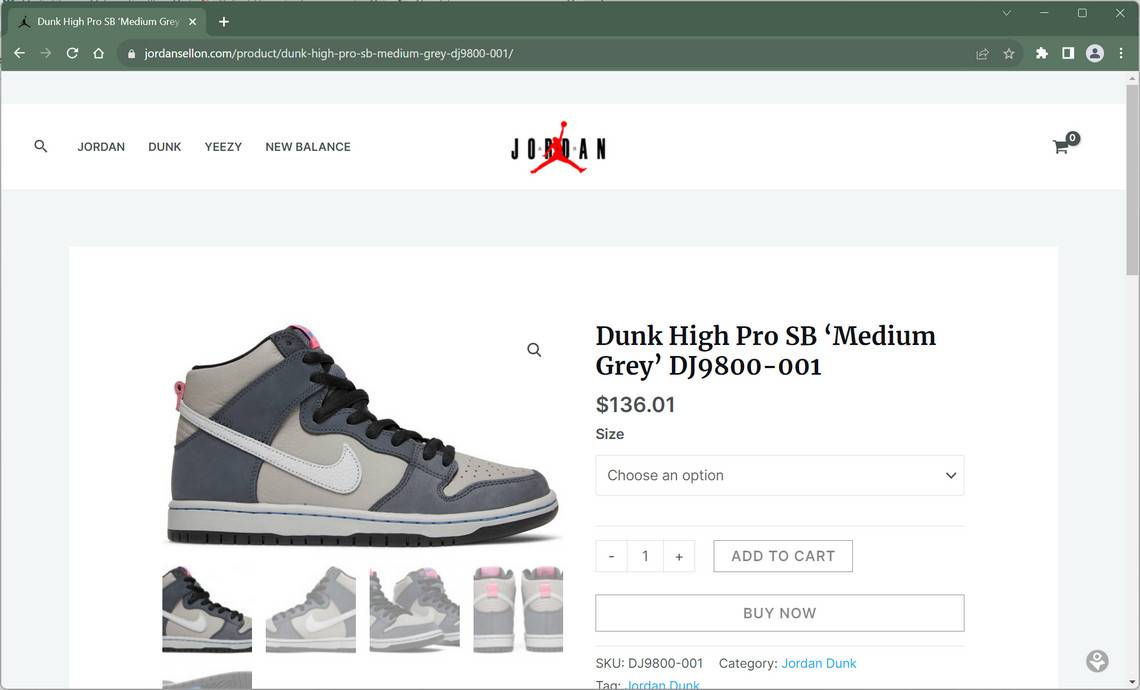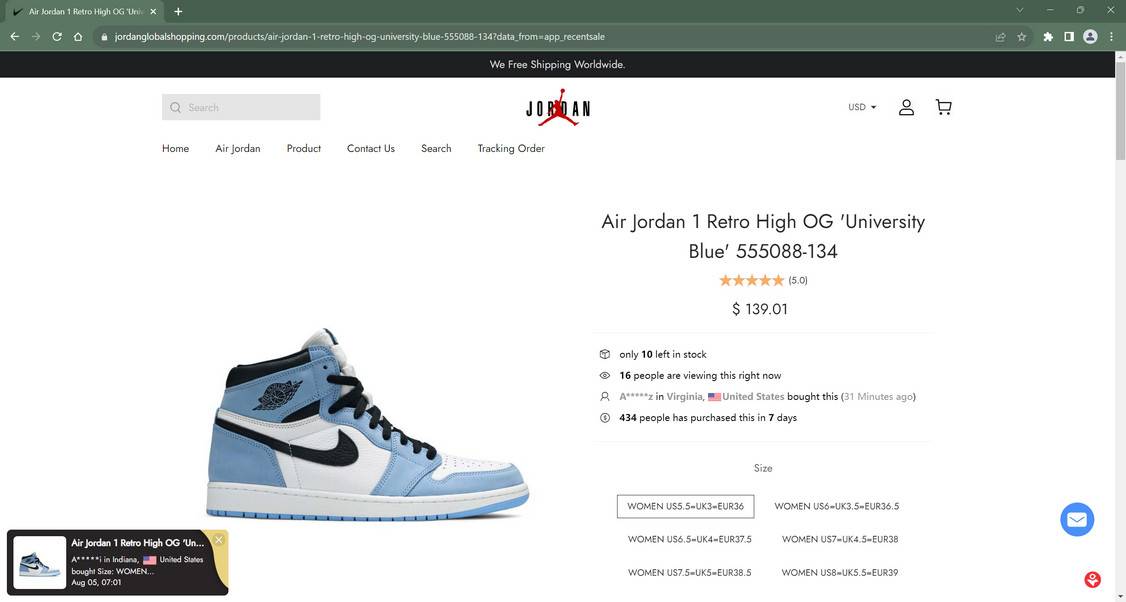As one of Nike’s most iconic shoe lines ever, Air Jordans have amassed a cult-like following among sneakerheads. But this popularity has also made Air Jordans a prime target for elaborate scam websites seeking to exploit eager shoppers. Fake sites impersonating Nike Air Jordan have proliferated, luring victims with unbelievable prices before stealing their money and information. This article will break down exactly how to avoid these malicious Air Jordan scams.
- Overview of the Fake Air Jordan Website Scam
- How the Fake Air Jordan Website Scams Operate
- 5 Red Flags to Identify Fake Air Jordan Websites
- Safely Buying Air Jordans Online
- What to Do If Scammed by a Fake Air Jordan Website
- The Bottom Line on Avoiding Fake Air Jordan Websites
- FAQs About Fake Air Jordan Website Scams
Overview of the Fake Air Jordan Website Scam
In recent years, highly convincing fake Air Jordan websites have emerged to prey on sneaker buyers. These scam sites specifically target enthusiasts seeking deals on retro Jordans and new releases, like the AJ1, AJ3, AJ4 and AJ5.
They entice customers by advertising Air Jordans for only $135-$150 per pair – insanely low prices for shoes that normally resell for $200+. Seeing iconic shoes like Air Jordan 1 “Breds” for $140 convinces shoppers they’ve found a bargain. However, those who place orders end up in one of these unfortunate situations:
- Receive nothing after payment processes
- Obtain cheap, poor-quality knockoff shoes
- Get clearly used, damaged or tampered goods
- Are shipped something totally different than the Jordans ordered
In addition to selling fake products or nothing, these scam websites also harvest users’ personal and financial data during checkout for criminal purposes. The rise of these fraudulent Air Jordan sites threatens to quickly fleece enthusiastic sneaker buyers. But gaining awareness of their deceitful tactics is key to staying protected.
How the Fake Air Jordan Website Scams Operate
The scam artists running these fake Nike Air Jordan outlets have mastered the art of trickery. Here are the manipulative strategies they employ:
- Mirror official Nike site design – Use identical logos, fonts, layouts and product photos to appear legit.
- Claim special access to deals – Assert they obtained clearance Jordans directly from Nike at blowout prices.
- Offer unrealistic discounts – Advertise absurd 50-90% off prices on coveted shoes that seem too good to be true.
- Use urgency and scarcity tactics – Pressure shoppers with countdown timers and limited supply claims.
- Make checkout quick and easy – Enable guest checkout with minimal steps to encourage impulse buying.
- Quietly steal personal + payment data – Gather sensitive customer info during checkout to use or sell.
- Never fulfill orders – Take payments but nothing ships, despite fake confirmation emails.
This well-oiled process allows the scammers to maximize profits from duped shoppers seeking Air Jordan deals. But spotting their deceitful tricks early on can prevent you from being scammed.
5 Red Flags to Identify Fake Air Jordan Websites
While the scam sites have become more advanced, key signals can still expose them:
- Prices too good to be true – New or retro Jordans never sell for under retail value. Discounted prices likely indicate a scam.
- Generic product images – Low resolution, stolen or doctored photos rather than official product shots indicates fraud.
- Grammatical errors – Bad spelling, grammar and typos often reveal overseas scam operators.
- No physical address – Check that a legitimate U.S. corporate address and contact info are listed.
- No customer service number – Authentic retailers always provide a working customer support phone number.
Safely Buying Air Jordans Online
Use these tips when shoe shopping online to avoid fake Air Jordan scams:
- Only buy on Nike.com – Never purchase Jordans from unfamiliar sites or social media sellers.
- Verify site reviews – Research sites on TrustPilot and Reddit to check feedback from real customers indicating legitimacy.
- Compare prices – If deals seem too good to be true compared to normal resale prices, it’s likely a scam.
- Avoid “exclusive access” hype – Claims of early links or backdoor access to deals are highly suspicious.
- Use credit over debit cards – Credit cards offer stronger fraud protections to recoup your money.
- Check domain age – Use Whois.com to see if a site was recently created, which is a red flag.
What to Do If Scammed by a Fake Air Jordan Website
If you made a purchase or entered personal information this website, acting quickly can help you minimize financial loss, secure your accounts, and prevent further misuse of your data. Follow these steps carefully:
- Contact your bank or payment provider immediately
If you paid with a credit or debit card, call your bank’s customer service line and explain that you placed an order on a website that may be fraudulent. Request to dispute the transaction or initiate a chargeback.
If you used PayPal or another payment processor, file a dispute through their resolution center and provide order confirmations, emails, or screenshots as supporting evidence.
Fast action gives you the best chance of recovering your money and preventing additional unauthorized charges. - Freeze or replace your payment method
If your card or account details were entered on this website, it’s safest to have your bank or provider issue a replacement card. This prevents future unauthorized transactions and protects your financial accounts.
Some banks may also offer temporary holds or fraud alerts, ensuring no additional transactions can be made without your consent. - Run a personal data removal scan
Fraudulent websites often collect personal information such as names, phone numbers, addresses, and emails. This data may be shared with third parties or added to marketing and phishing lists.
A trusted service such as Malwarebytes Personal Data Remover can identify where your information is listed across data broker networks and help you request its removal. - Check your digital footprint
Even if you didn’t lose money, your personal data could already be circulating online. Running a digital footprint scan can help reveal whether your email address, phone number, or other personal information is present in leaks or broker databases.
This allows you to take proactive measures such as changing credentials, monitoring accounts, or setting up alerts before your data is misused. - Change your passwords and enable 2FA
If the same email or password used during checkout is also used on other websites or services, update those credentials immediately.
Choose strong, unique passwords and enable two-factor authentication (2FA) on all important accounts, especially your primary email, banking apps, and social media. This extra security layer makes unauthorized access significantly harder. - Scan your device for potential threats
Many fraudulent sites contain hidden tracking scripts, phishing pop-ups, or files designed to compromise your security.
Run a full system scan using a trusted security solution such as Malwarebytes Free or ESET Online Scanner to make sure your device hasn’t been exposed to malware or spyware during the visit.
If any suspicious files are found, remove them and restart your device. - Check your accounts and statements regularly
Monitor your bank and credit card statements closely for any unauthorized activity. Look for unfamiliar charges, subscription renewals, or repeated small test transactions.
Also review your email inbox and online accounts for password reset notices or sign-in alerts you didn’t initiate. Report anything unusual to your bank or account provider immediately. - Report the incident to the appropriate authorities
Reporting helps law enforcement track fraudulent websites and can support your claim if needed.- In the U.S., file a report with FTC ReportFraud.ftc.gov.
- In the EU, contact Europol or your national cybercrime unit.
- Globally, you can also submit the site to ScamAdviser to help warn other consumers.
Providing the website URL, order details, and communications increases the impact of your report.
- Save all evidence and communication
Keep copies of order confirmations, emails, payment records, chat logs, and screenshots of the website. This documentation can be crucial for supporting your chargeback request, reporting the case, or pursuing legal remedies if needed.
Store everything in one secure folder so you can easily provide it to your bank or relevant agencies. - Be cautious of follow-up contact
After incidents like this, affected individuals may receive fake refund messages, phishing emails, or phone calls pretending to offer “assistance.”
Do not click on unsolicited links, download attachments, or provide additional personal information. If you receive any message related to this website, verify its authenticity directly through your bank or official payment provider channels.
The Bottom Line on Avoiding Fake Air Jordan Websites
Seeking deals on coveted Jordans can be tempting. But consumers must stay vigilant against scam sites waiting to take advantage of eager sneakerheads. Implement secure shopping practices, thoroughly vet sites, and exercise basic caution when a deal seems too good to be true. Protect your personal information, avoid shady websites, and only purchase from reputable sellers to buy real Air Jordans safely online.
FAQs About Fake Air Jordan Website Scams
What are the chances my bank refunds me if I report being scammed?
If you report the fraudulent charges quickly, your bank or credit card company should be able to stop payments and fully refund unauthorized scam charges in most cases.
Can I get hacked just by visiting a scam Air Jordan website?
Simply visiting a scam site generally won’t lead to hacking. Submitting any personal data like your name, address or payment info is what compromises your information.
Are the fake sites selling actual counterfeit Jordans?
In rare cases they may ship cheap knockoff shoes, but most often you’ll receive nothing or random items. Getting real Air Jordans, fake or authentic, from them is highly unlikely.
How can I identify a scam Air Jordan website from social media ads?
Scrutinize for red flags like prices below retail, urgency claims of limited supply, and lack of reviews. Approach giveaways, early links or backdoor access hype critically before purchasing.
What details should I have ready when reporting the scam site?
Gather the website name, URL, payment confirmation details, and any screenshots or correspondence as evidence. The more details you provide authorities, the better.







